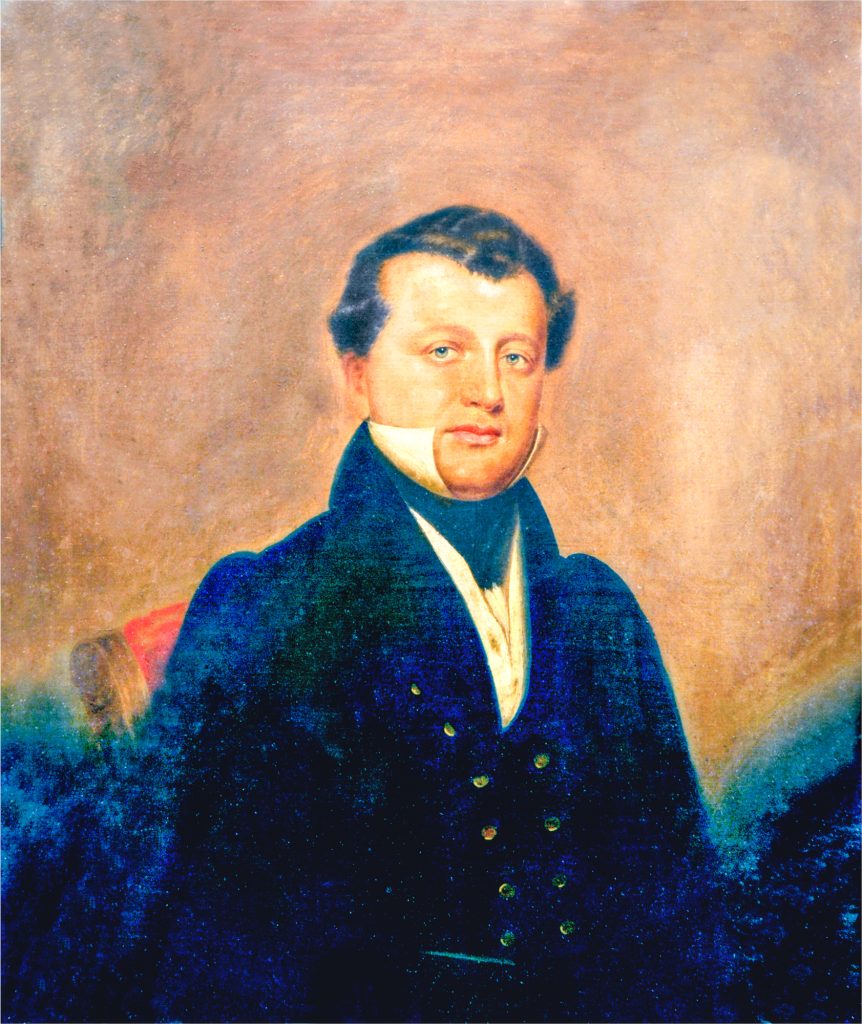The third child and first-born son of SolomonEtting and his second wife, Rachel Gratz,Samuel grew up within a sprawling complex of siblings (like Kittyand Richea) half siblings (like Miriam)cousins, uncles and in-laws that accounted for nearly all of theleading Jewish figures in the Baltimore of his day.
When British forces attacked Baltimore in September 1814,eighteen-year-old Samuel was a member of the Committee of Vigilanceand Safety and, along with other citizen soldiers, leapt to defendthe city. He served among the Baltimore Fencibles in the defense ofFort McHenry, alongside brothers Mendes andPhilip I. Cohen, and sustained several wounds in the process.
Samuel, like other members of the Etting family, was an ordinarytrader. For a while he was a purchaser and sales agent for RobertGarrett of Baltimore, selling the firm’s whiskey in return for tea,spices, indigo and coffee. In 1828, at age 32, he married his secondcousin, Ellen Hays (then 28), the fourth of nine children of SamuelHays and Richea Gratz. As parents, Samuel and Ellen did notexperience the joys of a large family like those in which theythemselves had been raised. Their two small sons both died ininfancy, and their daughter, Josephine, never married.
Though the Samuel family had played a leading role in Baltimore’slargely Ashkenazi Jewish community, he and Richea continued tomaintain close ties to Congregation Mikveh Israel in Philadelphia,preferring the traditional Sephardic rite with which they werepersonally familiar. In 1857, Samuel joined withSolomon Nunes Carvalho and a few others tofound the short-lived Baltimore Sephardic congregation BethIsrael, for which he served as the first—and only—presidentduring its two-year existence.
